-
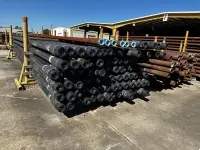
Drill pipe welding is strictly limited and highly regulated. Although drill pipes can be welded, welding is only permitted for specific steel grades, specific locations, and under strictly controlled process conditions. Conventional API drill pipes must not be arbitrarily welded on-site as load-bearing connections, as this can severely compromise structural integrity and lead to serious downhole safety accidents.
-
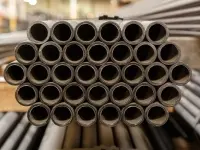
Schedule 80 steel pipe is a heavy-wall carbon steel pipe designed for high-pressure and high-temperature applications. Compared with lower schedules, it features a significantly thicker wall, which provides higher mechanical strength, improved durability, and better resistance to internal pressure and external impact.
-
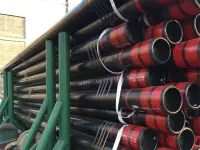
Preventing oil casing corrosion is critical to maintaining well integrity, extending service life, and reducing workover and replacement costs. Effective corrosion control focuses on water quality management, annular protection, mechanical damage prevention, bacterial control, and proper timing of protection technologies. Here is an overview of how to prevent oil casing from corrosion.
-
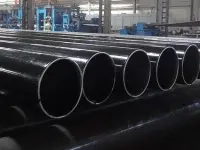
The welding temperature for carbon steel pipe is typically controlled within the range of 150°C to 260°C. This range is widely accepted in engineering practice to ensure proper weld formation, adequate mechanical strength, and stable metallurgical structure. In most cases, this temperature range corresponds to the upper limit of preheating temperature or interpass temperature, depending on material composition, wall thickness, and service conditions. Welding temperatures that are too high or too low can lead to defects such as cracking, excessive hardness, or poor fusion, ultimately compromising weld quality.
-
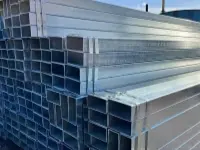
For most buyers, selecting the right galvanized (GI) square and rectangular tube specifications is essentially a decision-making process that balances application requirements, structural strength, and total cost. Different industries show clear and repeatable patterns in size selection, driven by load conditions, fabrication needs, and budget constraints.
-
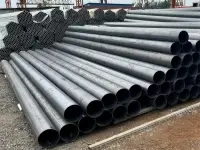
The density of carbon steel pipe is generally accepted as 7.85 g/cm³(7850 kg/m³) and is widely used in engineering calculations worldwide. This value applies across major standards such as ASTM, API, EN, and GB, regardless of pipe size or grade. Understanding carbon steel pipe density is essential for accurate weight calculation, structural design, and cost estimation in industrial and construction projects.
-
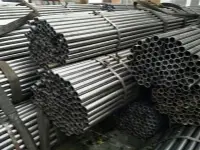
Precision steel pipe tolerance marking defines allowable dimensional and geometric deviations for OD, ID, and shape accuracy. Correct tolerance marking is essential to ensure machining feasibility, assembly compatibility, and cost control.
-
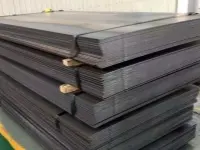
According to the technical requirements of international and industry standards, carbon steel plates and their machined components must be protected against corrosion during storage. Improper storage may lead to surface degradation, deterioration of mechanical properties, and even slow crack propagation, increasing the risk of structural failure.Therefore, scientific and standardized storage practices are a key factor in maintaining the quality and service life of carbon steel plates.
-
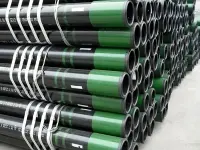
The appropriate length of a steel casing pipe is determined by a combination of pipe diameter, installation environment, and functional requirements. While most casing pipes are supplied in standard lengths, customized lengths are often required for special applications such as deep wells, large-diameter pipelines, or complex installation conditions. This guide explains how to determine the optimal steel casing pipe length from a practical engineering perspective.
-
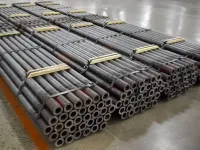
A seamless drill pipe is the core structural and power-transmission component of the drill string in oil and gas drilling operations. It is manufactured from seamless steel tubing and is designed to transmit torque, circulate high-pressure drilling fluid, and extend continuously to deepen the wellbore during drilling.
-
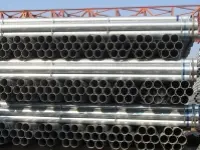
In many industrial applications, cost, efficiency, and performance are all factors engineers must consider when choosing between ERW (Electric Resistance Welded) pipe and seamless pipe. With the rapid development of welding technology, modern ERW pipes have significantly improved in strength, consistency, and reliability.This article will discuss whether ERW pipes can replace seamless pipes.
-
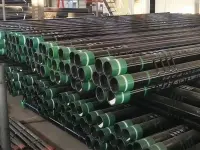
In oil and gas extraction, casing pipe serves as the primary structural barrier that maintains wellbore integrity and ensures long-term, safe production. The fundamental principle in casing selection is matching material performance to environmental loads. Different geological conditions, temperatures, pressures, and fluid chemistries impose very different requirements on mechanical strength, corrosion resistance, and service life. Improper selection can result in casing failure, well control incidents, and substantial economic losses.
From the perspective of environmental adaptability, casing design must be tailored to operating conditions rather than relying solely on strength grade. Below is a practical overview of five typical application environments and corresponding casing selection strategies.
-
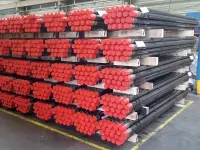
Drill pipe is the core component of the drill string, made from seamless alloy steel and composed of the pipe body, tool joint, and weld zone. It transmits torque, circulates drilling fluid, and bears drill string load. Its specifications and structure vary with different drilling applications, directly impacting drilling safety and efficiency.This article will briefly introduce drill pipe structure and common specifications.
-
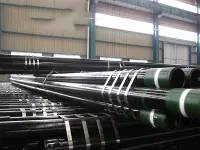
Well casing pipe is essential for any water well. It protects the wellbore from collapse, blocks contaminants, and provides long-term structural support.This article will briefly introduce damage and repair of well casing pipe.
-
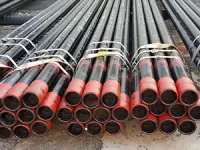
In oil and gas extraction, tubing and casing are two essential types of well pipes. Both are critical for safe, stable, and efficient production, and their respective pressure ratings directly influence well integrity and operational reliability. Here's an overview of comparison of tubing and casing pressure.
-

Square tubes (SHS steel) are structural tubing with a square cross-section. They are typically produced by bending steel strips or plates into shape and then welding the seam. Seamless square tubes are also available, manufactured through cold-drawing or hot-rolling processes for higher strength and uniformity. Thanks to their symmetrical geometry and excellent load-bearing capability, square tubes are widely used in applications that require strong support or frame structures.This article will briefly introduce how to bend a square tube.
-
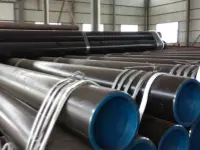
SCH 40 and SCH 40S are commonly used pipe schedules in construction, petrochemical, pharmaceutical, and general industrial applications. While they appear similar, they differ in material suitability, standards, and performance.
-
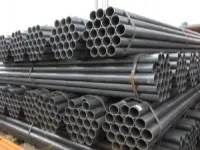
In the world of industrial construction and pipeline systems, choosing the right pipe diameter is critical for safety, stability, and efficiency. Among various specifications, DN219 steel pipe stands out for its balance between strength, size, and adaptability, making it a preferred choice across construction, energy, and manufacturing sectors.
-
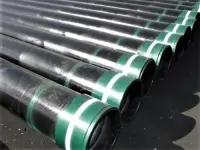
ISO 11960:2020(E) – Petroleum and natural gas industries — Steel pipes for use as casing or tubing for wells. This article will briefly introduce ISO 11960 casing and tubing for wells.
-
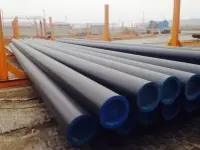
This seamless steel pipe is manufactured from X42 pipeline steel and fully complies with the API 5L Grade B specifications set by the American Petroleum Institute. It is engineered for fluid transportation systems in the oil, natural gas, and chemical industries.This article will briefly introduce X42 seamless steel pipe for trench connections.
-
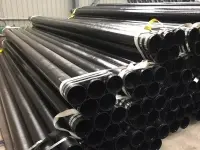
Seamless steel pipes are essential components in industrial piping systems, and their high-temperature resistance is a key factor in determining their performance and service life. This property reflects their ability to maintain stable mechanical and chemical characteristics under extreme heat, ensuring the safe and efficient operation of pipelines.




















